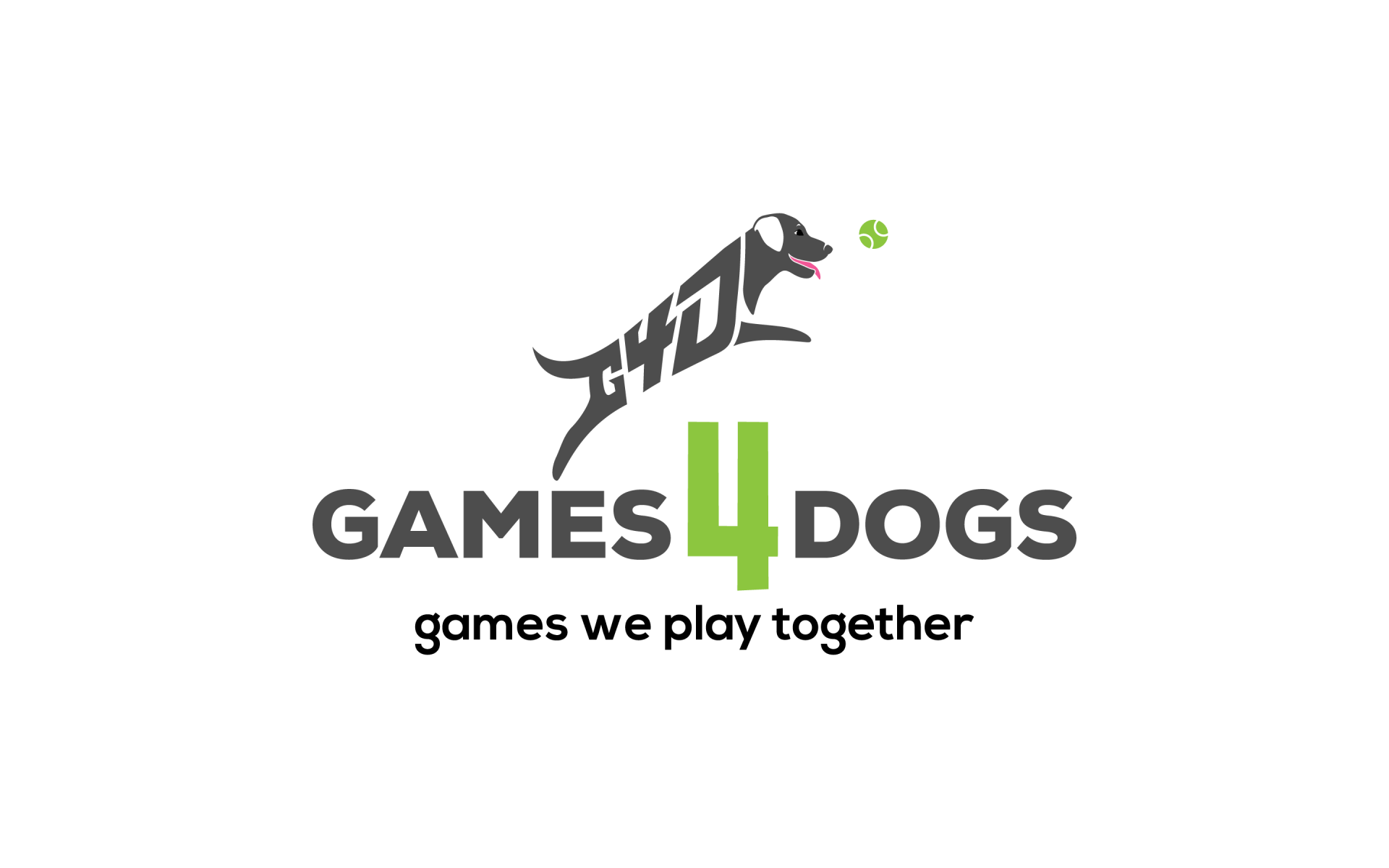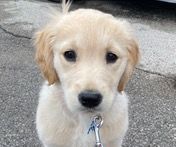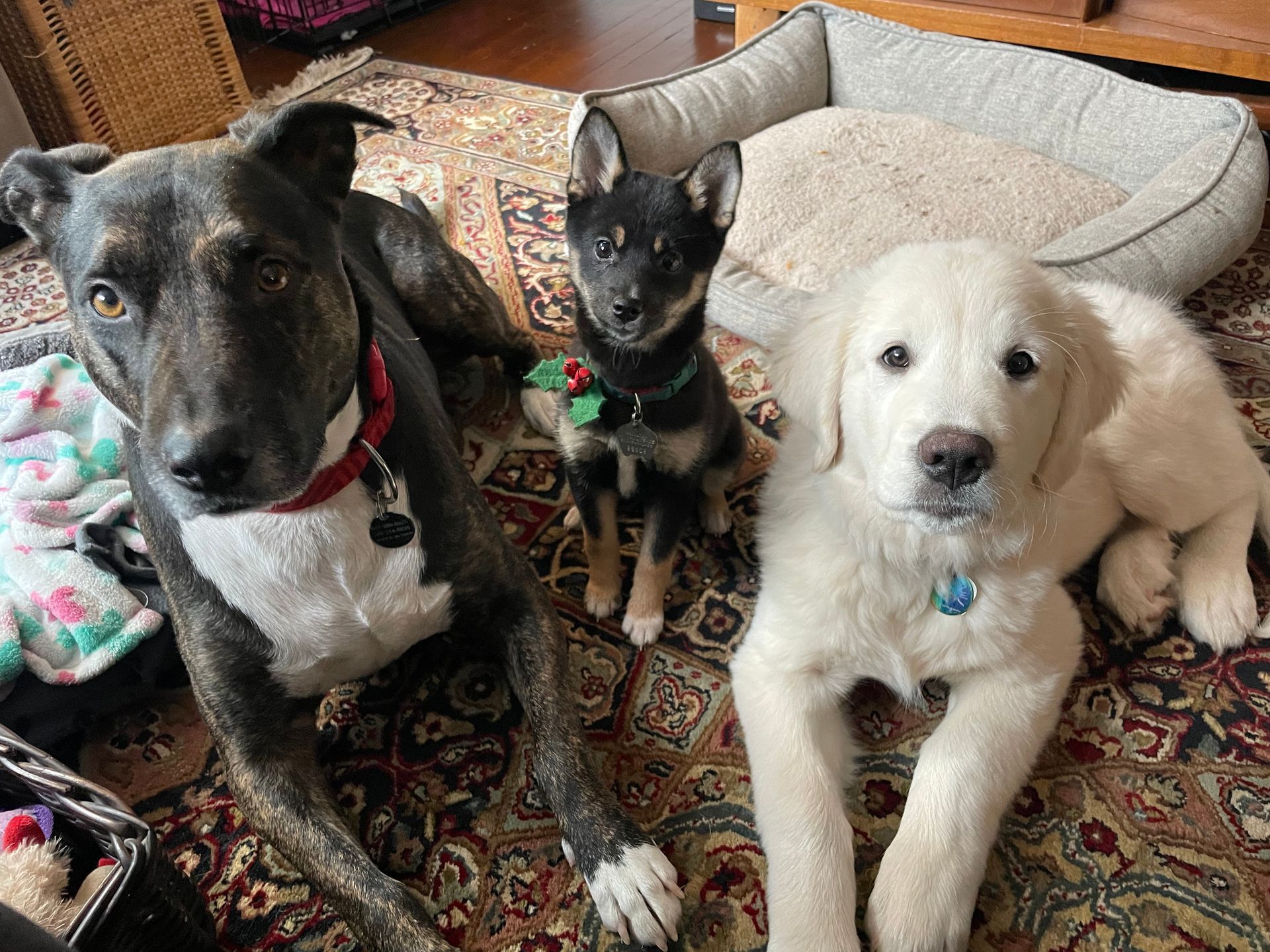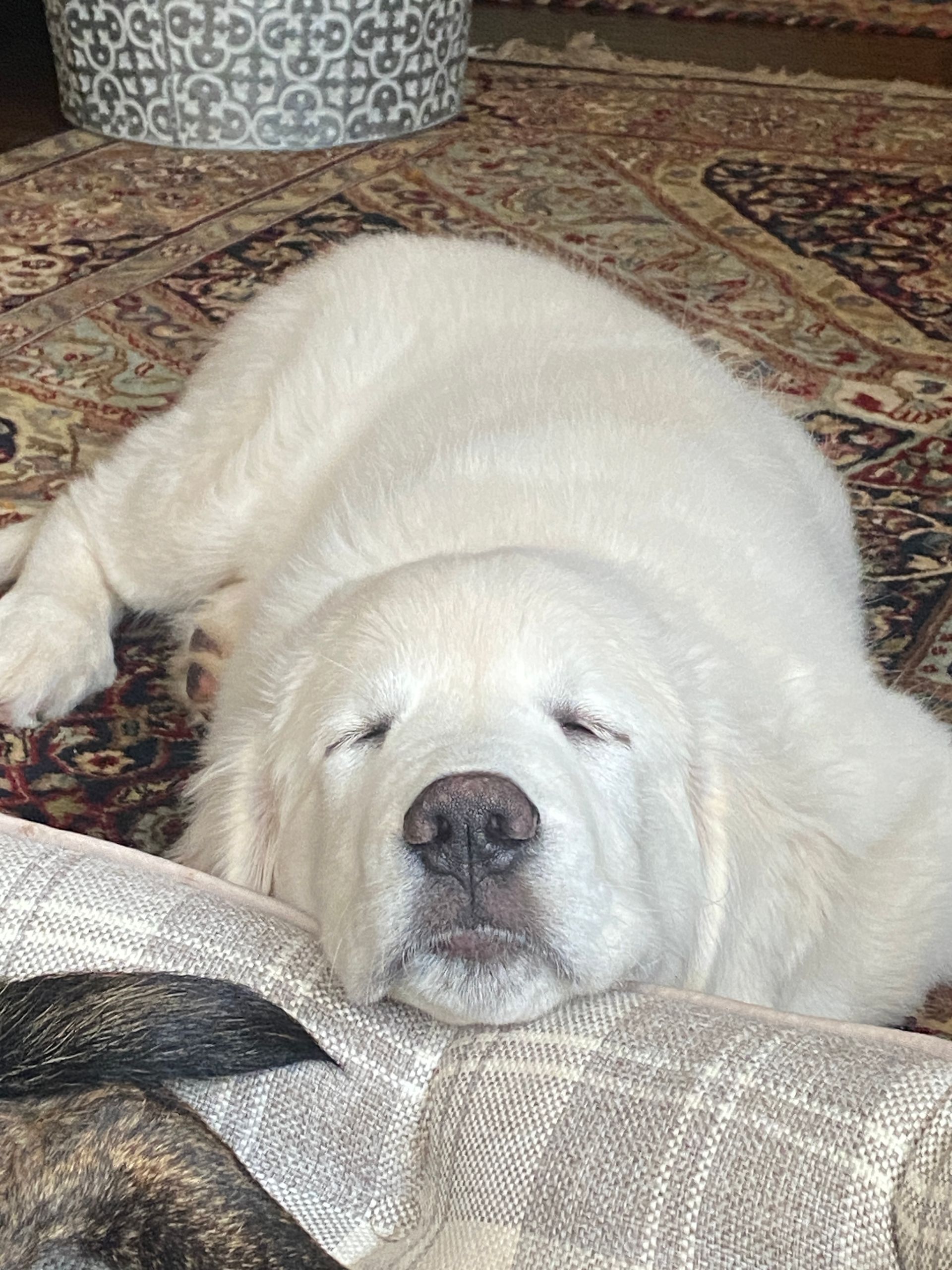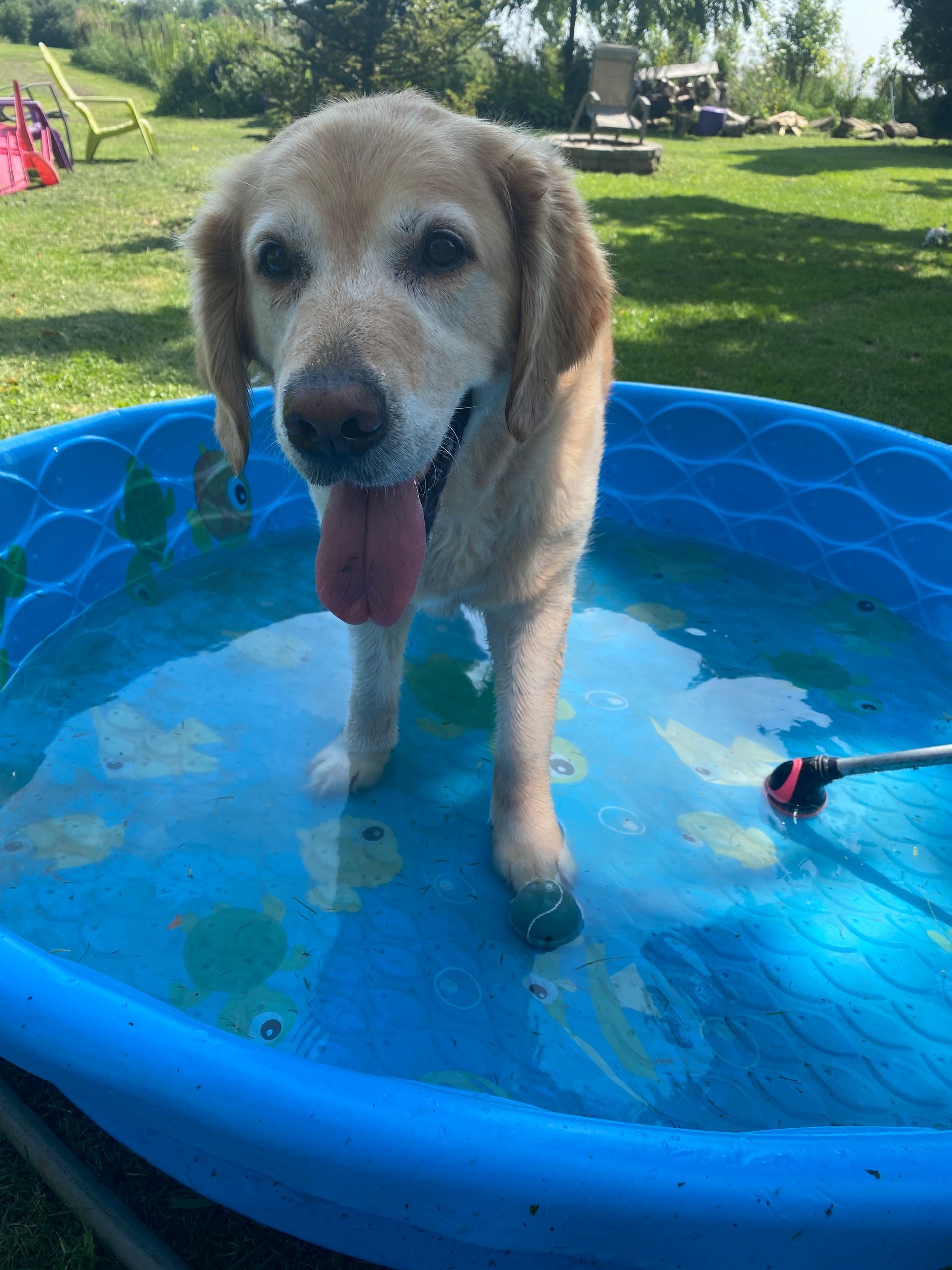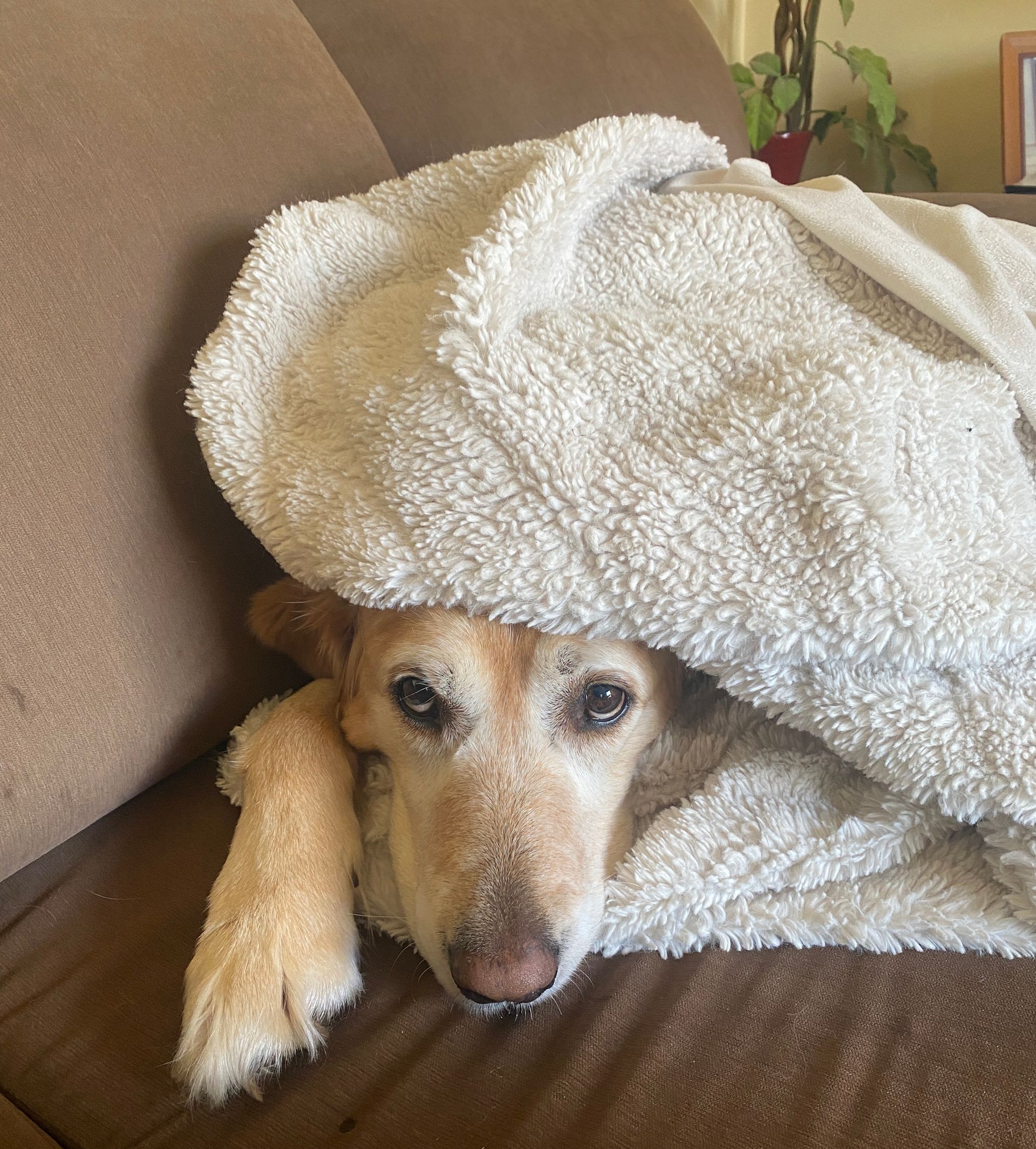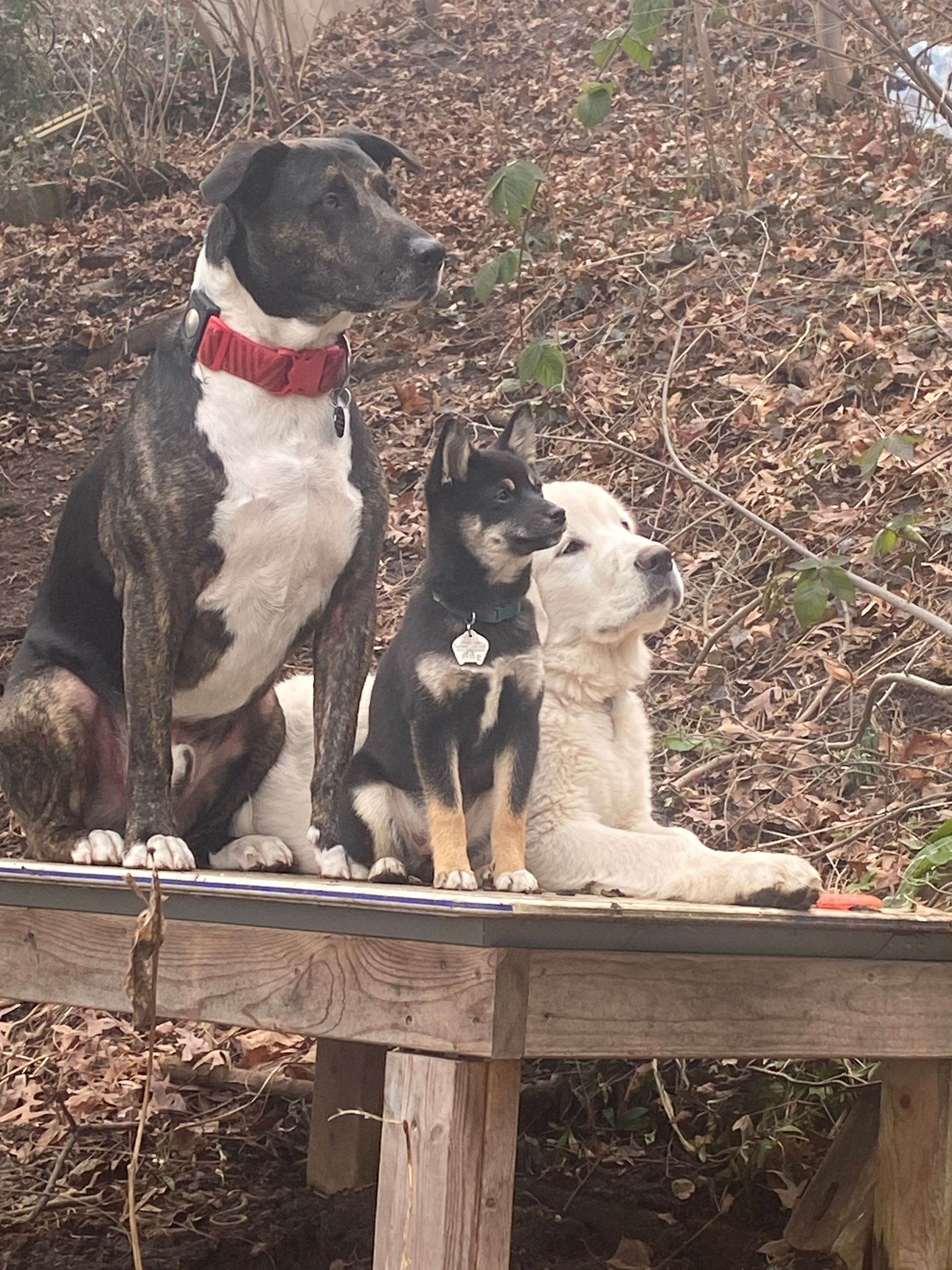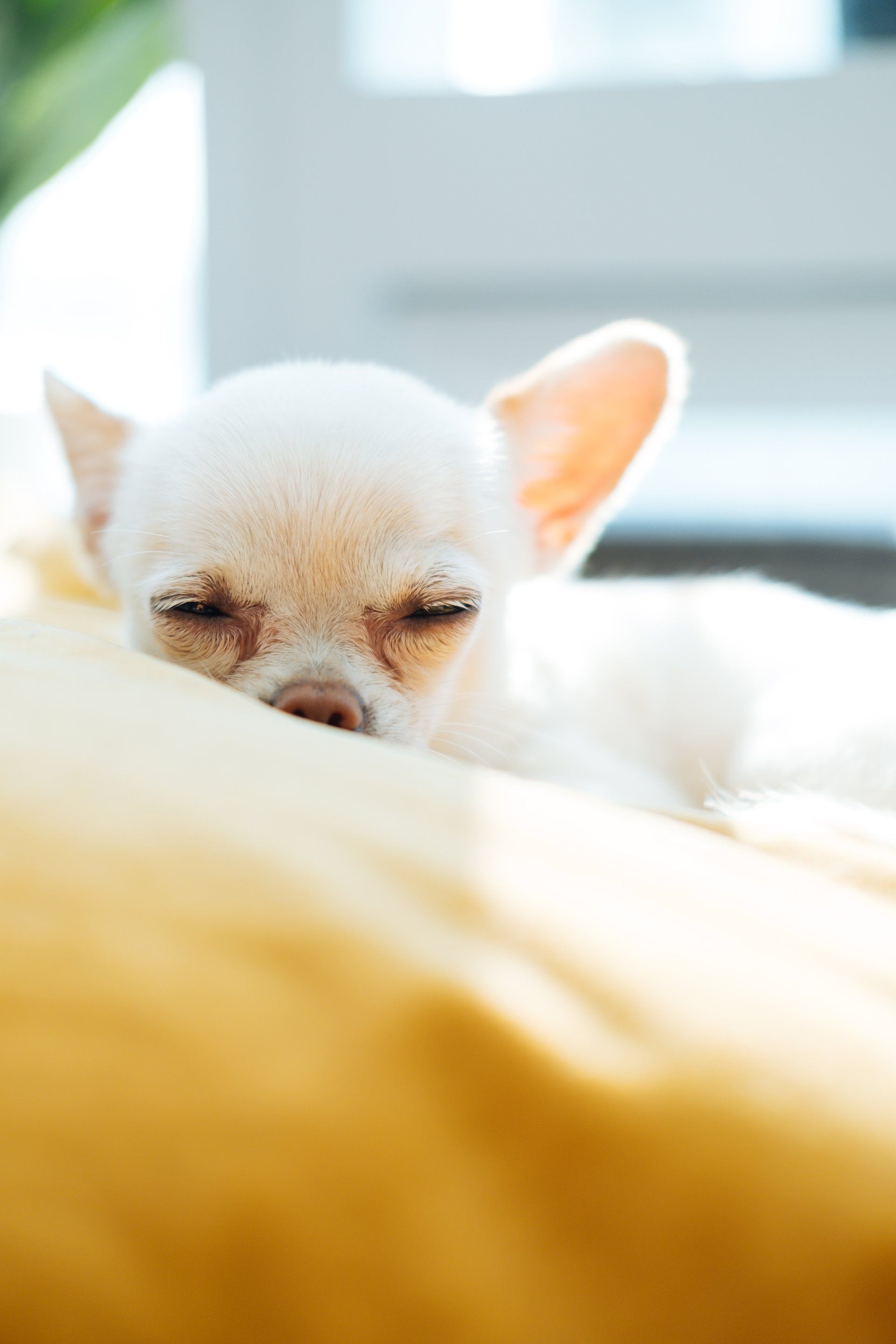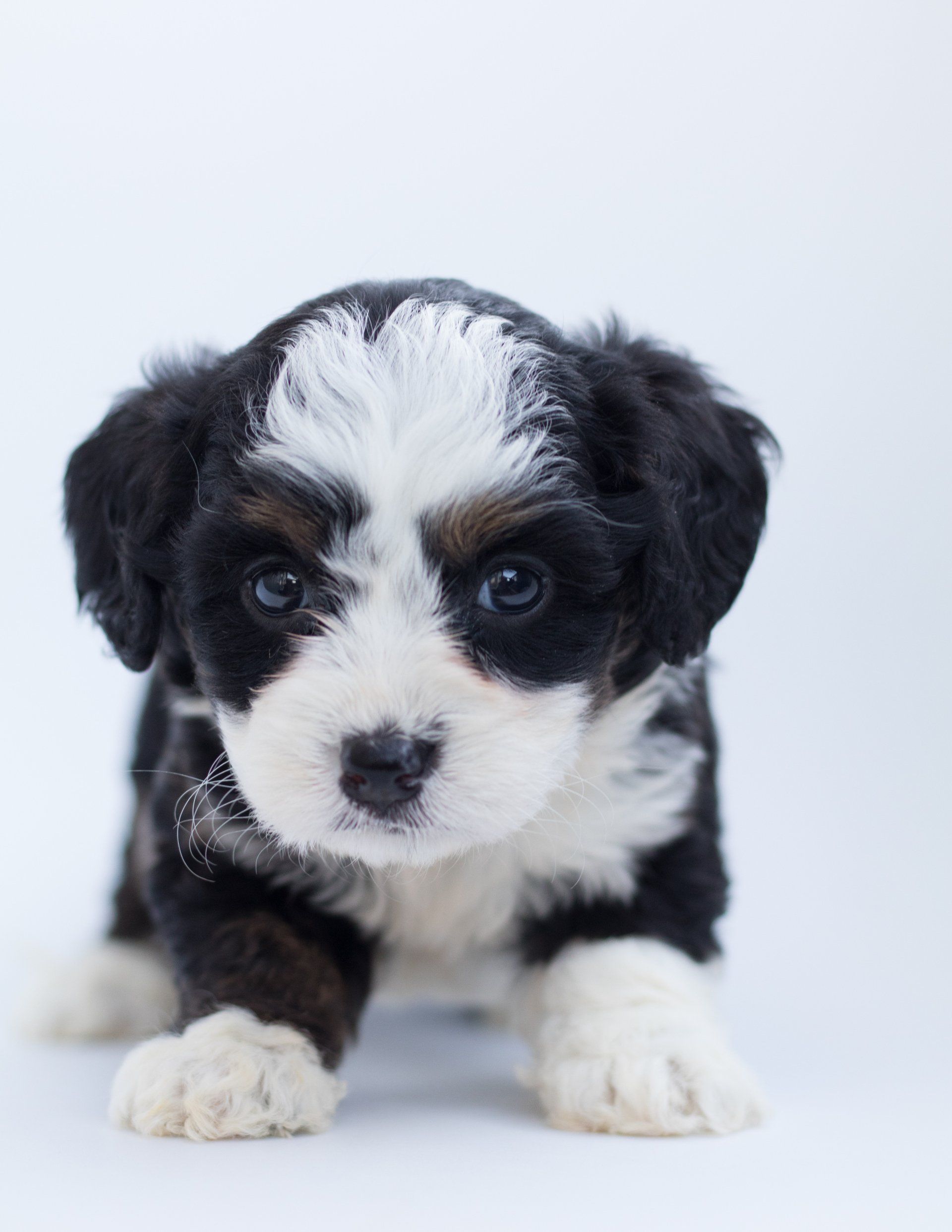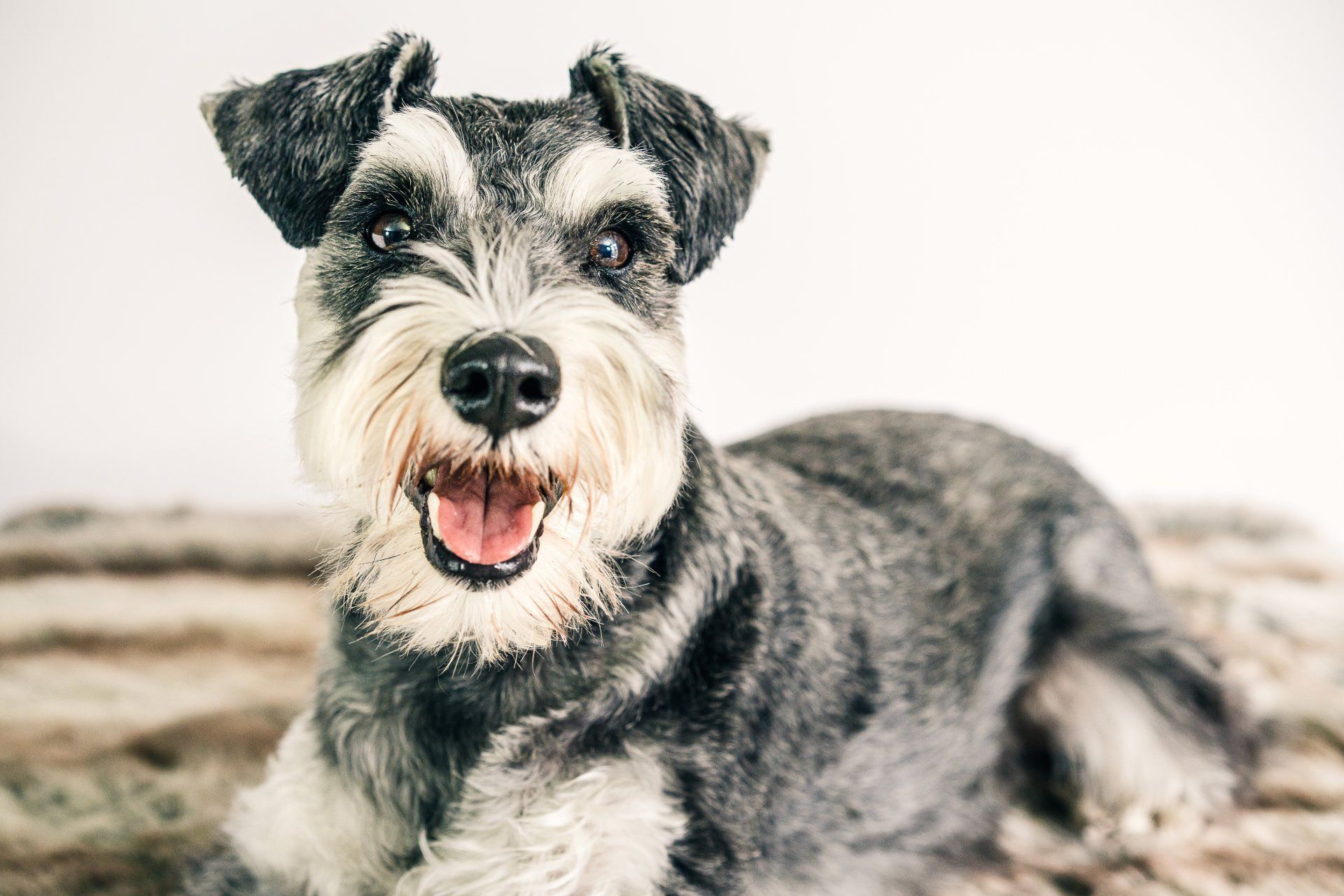Games 4 Dogs
Setting the Foundations for Puppy Training and Success
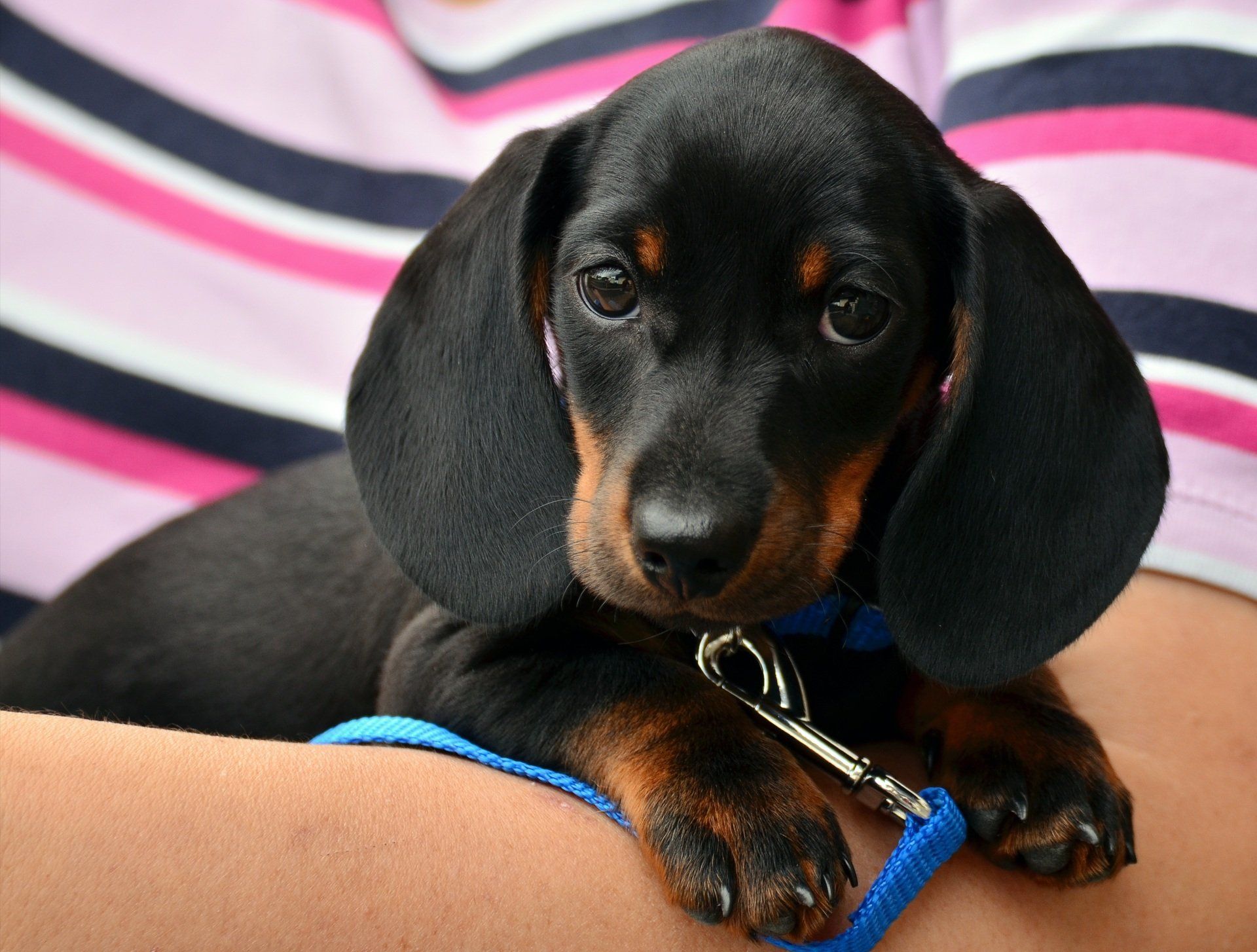
Preparing Your Home: Setting the Stage for Success
Bringing a puppy home is an exciting milestone, but before their paws hit the floor, it's essential to set up a safe and structured environment. Think of it like baby-proofing, but for a tiny, curious explorer with sharp teeth and boundless energy.
A well-prepared home not only prevents accidents and destruction but also helps your puppy feel secure, making the transition smoother for both of you. Here’s how to set up a safe and welcoming space for your new furry companion:
Puppy-Proofing Your Space
Puppies explore the world with their mouths and noses, so it's crucial to eliminate potential hazards before they arrive.
- Remove potential dangers: Hide or secure electrical cords, toxic plants, cleaning supplies, and any small objects that could be swallowed.
- Store valuables safely: Keep shoes, books, and anything you don’t want chewed well out of reach. If it’s within a puppy’s range, consider it fair game!
- Block off restricted areas: Use baby gates or puppy playpens to limit access to rooms that aren’t puppy-friendly.
Creating a Safe Zone
A designated "safe space" gives your puppy a place to relax and feel secure in their new home. This is essential for helping them settle in and preventing anxiety.
- Choose a quiet, low-traffic area for their crate or playpen. Avoid placing it in the middle of household chaos.
- Make it cozy: Add soft bedding, a favorite chew toy, and a piece of fabric with your scent to help them feel at ease.
- Encourage exploration: Leave the crate or playpen open at first so your puppy can explore it freely without pressure.
By preparing your home in advance, you’re not just preventing mischief—you’re setting your puppy up for a confident and stress-free transition into their new life.
The First 24 Hours: A Gentle Introduction
The first day home is a big adjustment for your puppy. They’ve just left their familiar surroundings, their littermates, and everything they knew. It’s natural for them to feel unsure, so your job is to provide a calm, structured, and reassuring environment.
Arriving Home: Keeping It Low-Key
It’s tempting to smother your new puppy with love and excitement, but less is more on day one.
- Stay calm and patient: Speak softly and move at their pace. Avoid overwhelming them with too much attention or introducing too many people at once.
- Give them a potty break first: Before heading inside, take your puppy to their designated potty spot. Reward them for going in the right place to start good habits early.
- Let them explore at their own speed: Keep the initial introduction to their new home stress-free. Allow them to sniff around while you supervise.
Establishing the First Routine
Puppies thrive on structure, and setting up a predictable routine from day one will help them feel safe and settled.
- Mealtime consistency: Feed your puppy at the same times each day in the same location. This builds a sense of security and aids in potty training.
- Potty training starts now: Take your puppy outside frequently—after eating, drinking, playing, and napping. Praise them when they go in the right spot.
- Encourage rest and downtime: Puppies need plenty of sleep. Guide them to their crate or safe zone for naps to prevent overstimulation.
The First Night: Easing Separation Anxiety
The first night can be tough. Your puppy might whimper or cry as they adjust, but you can help them feel safe without reinforcing unwanted behaviours.
- Keep the crate near you: Placing their crate in your bedroom or close by allows them to feel comforted by your presence.
- Offer a comfort item: A soft toy or a blanket with their littermates’ scent (if possible) can provide reassurance.
- Use gentle reassurance, but don’t overdo it: A calm voice or a light touch can help, but avoid excessive soothing that teaches them to cry for attention.
By staying patient and setting a reassuring tone from the start, you’ll help your puppy feel secure, confident, and ready to bond with you.
Days 2-7: Building Trust and Confidence
The first week with your puppy is all about establishing routines, building trust, and gently introducing them to their new world. This is when they start forming strong associations—both good and bad—so setting a positive tone is key.
Introducing the House and Family
Your puppy is still adjusting, so introduce new experiences gradually.
- One room at a time: Start by giving your puppy access to a small, puppy-proofed area rather than the whole house. Expand their space as they gain confidence.
- Controlled introductions to family members: Have each person greet the puppy calmly, allowing the puppy to approach on their own. This builds trust and prevents overwhelm.
- Introducing other pets: Keep interactions short and positive. Supervise closely, and allow your puppy to observe from a safe distance before direct contact.
Building the Foundation for Good Behaviour
Now is the time to start shaping habits that will last a lifetime.
- Reinforce calm behaviour: Reward your puppy when they settle on their own or choose to rest quietly. This teaches self-regulation.
- Use a cue for potty breaks: Say a word or phrase like "Go potty" each time they eliminate outside. They’ll quickly learn what you expect.
- Begin simple training exercises: Reward your puppy for looking at you, following you, and responding to their name. These small wins build engagement and trust.
Socialization: Safe, Positive Experiences
Early socialization is essential, but it must be done at your puppy’s pace.
- Introduce gentle new experiences: Different textures, household sounds, and objects (like umbrellas or vacuum cleaners) should be introduced in a calm, rewarding way.
- Short, positive outings: If your puppy is vaccinated, start with quiet outdoor walks or visits to a friend’s house for a low-stress introduction to new environments.
- Encourage confidence: Allow your puppy to explore at their comfort level. Never force them into a situation they find scary—support them instead.
Recognizing Signs of Stress and Overstimulation
Puppies process a lot of new information, and they can become overwhelmed. Watch for signs that they need a break:
🚩
Excessive yawning, lip licking, or turning away
🚩
Sudden zoomies followed by crashing into a deep sleep
🚩
Ignoring food or treats (when normally excited by them)
🚩
Hiding, cowering, or seeking constant comfort
If your puppy shows these signs, slow things down. Allow more rest time and create a predictable, stress-free environment. By the end of the first week, your puppy will start feeling more settled, and you’ll have laid the foundation for a trusting and loving bond.
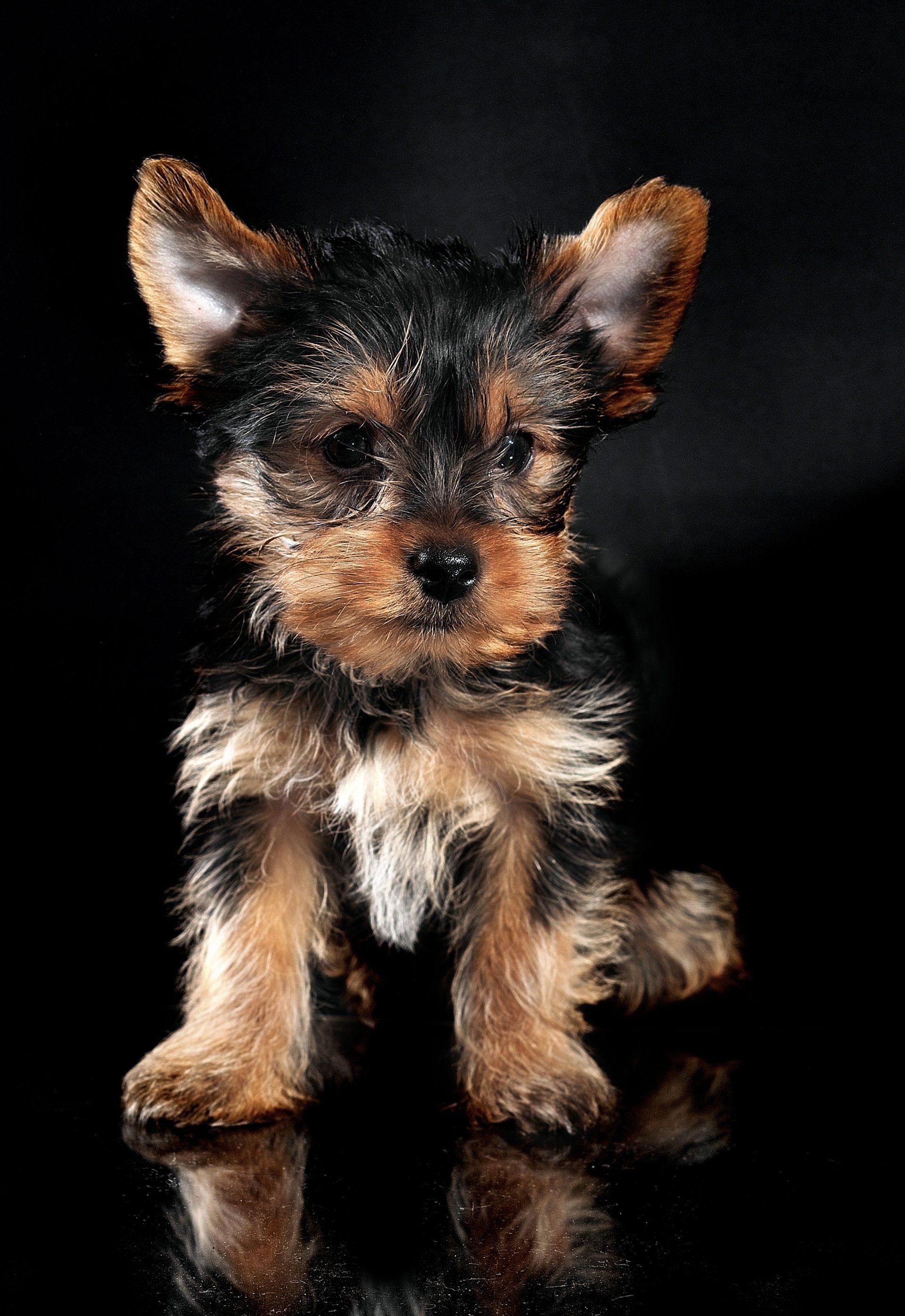
Week 2: Establishing Routines and Early Training
Now that your puppy is settling in, it’s time to reinforce structure, introduce basic training, and continue socialization. Consistency is key—puppies thrive when they know what to expect!
Creating a Predictable Daily Routine
A structured schedule helps your puppy feel secure and reduces accidents or unwanted behaviors.
🕗
Morning Routine: First potty break → breakfast → short play/training session → another potty break
🕛
Midday: Nap time → potty break → chew time or interactive play
🕕
Evening: Dinner → gentle exploration or socialization → wind-down time → bedtime routine
📌 Tip: Puppies need 16-20 hours of sleep per day—avoid overstimulation and give plenty of nap opportunities!
Introducing Basic Training Commands
This is the perfect time to begin simple cues that will shape good behaviour for life. Keep sessions fun and reward-based!
🐾
Name Recognition: Say their name in an upbeat tone and reward when they look at you.
🐾
Sit: Hold a treat above their nose and slowly move it back—when they sit, say "Sit" and reward.
🐾
Come: Call their name in an excited voice, crouch down, and reward when they come running.
🐾
Leave It: Start by covering a treat with your hand. When your puppy stops trying to get it, reward with a different treat.
📌 Tip: Keep training sessions short (2-5 minutes) and end on a positive note!
Expanding Socialization and Confidence-Building
Your puppy is in a crucial learning phase—expose them to new sights, sounds, and experiences in a controlled, positive way.
✔️ Introduce
different surfaces (grass, tile, gravel, carpet)
✔️ Let them observe
friendly people and dogs from a safe distance
✔️ Play
novelty games (like walking through a cardboard tunnel) to boost confidence
⚠️ Watch for hesitation: If your puppy seems unsure, don’t force them. Instead, encourage exploration with a happy voice and rewards.
Preventing Common Puppy Challenges
🐶
Nipping & Biting: Redirect to a toy when they bite hands. If they get too excited, take a short break.
🐶
Jumping: Ignore jumping and reward when all four paws are on the ground.
🐶
Chewing Everything: Provide appropriate chew toys and rotate them to keep things interesting.
By the end of Week 2, your puppy will be gaining confidence, understanding their routine, and learning how to communicate with you. Keep up the consistency, and you’ll see amazing progress!
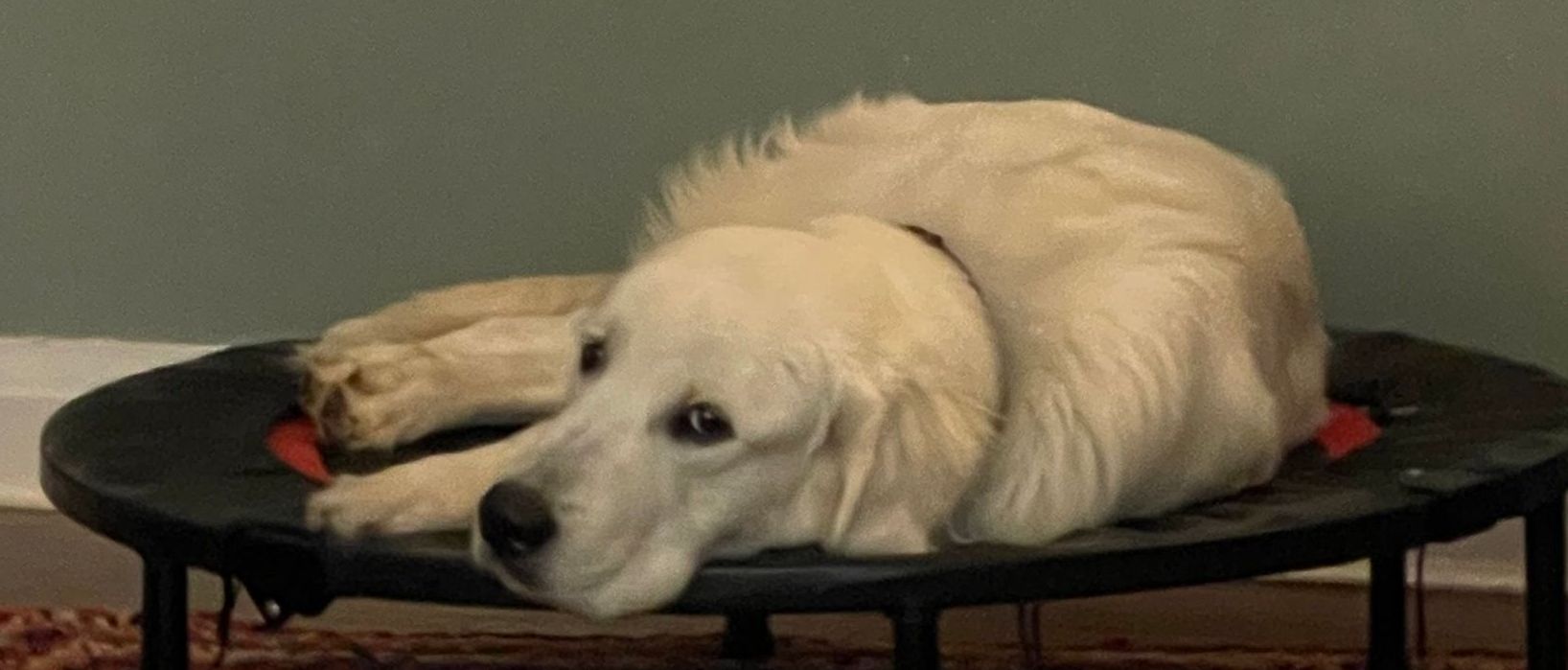
Week 3: Strengthening Training and Encouraging Independence
By Week 3, your puppy is starting to understand routines and basic commands. This week focuses on reinforcing training, encouraging independence, and managing early challenges.
Building on Basic Training
Your puppy is learning fast! Now is the time to practice and strengthen their skills with short, engaging sessions.
🐾
Stay: Ask your puppy to sit, then take a small step back. If they stay, reward quickly. Gradually increase distance and duration.
🐾
Drop It: Offer a toy, then present a treat. When they release the toy, say “Drop it” and reward.
🐾
Loose Leash Walking: Start in a quiet area, rewarding when your puppy stays by your side. If they pull, stop walking and wait for them to return to your side before continuing.
📌 Tip: Puppies have short attention spans! Keep training sessions fun, positive, and under 5 minutes to prevent frustration.
Encouraging Independence and Alone Time
It’s important for puppies to learn that being alone is okay. This prevents separation anxiety and helps them feel comfortable when you leave.
✔️
Practice crate time: Give a stuffed Kong or chew while they relax in their crate.
✔️
Short departures: Leave the room for a few minutes and gradually extend the time.
✔️
Ignore dramatic reactions: If your puppy whines, wait until they are calm before giving attention.
⚠️ Avoid over-coddling. Puppies need reassurance, but they also need to learn that alone time is safe.
Expanding Socialization & Handling Exercises
Your puppy is still in their critical socialization window—now is the time to gently expose them to new experiences, people, and handling routines.
👩⚕️
Vet-Prep Training: Touch their paws, ears, and mouth while rewarding to get them comfortable with exams.
🛁
Grooming Comfort: Introduce a soft brush and play calming sounds (like a hairdryer) in the background.
🚗
Car Rides: Start with short trips paired with treats and praise.
📌 Tip: Keep new experiences positive and low-stress—reward bravery, never force interactions.
Common Week 3 Challenges & Solutions
🐶
Potty Training Regression: Stay consistent! If accidents happen, revisit frequent potty breaks and supervision.
🐶
Increased Chewing: This is normal as puppies explore their world. Rotate chew toys and use
puppy-proofing strategies.
🐶
Barking for Attention: Teach your puppy that calm behaviour gets rewards—ignore barking and reward quiet moments.
By the end of Week 3, your puppy should be more confident, independent, and engaged in learning. Keep reinforcing good habits, and you’ll see steady progress!
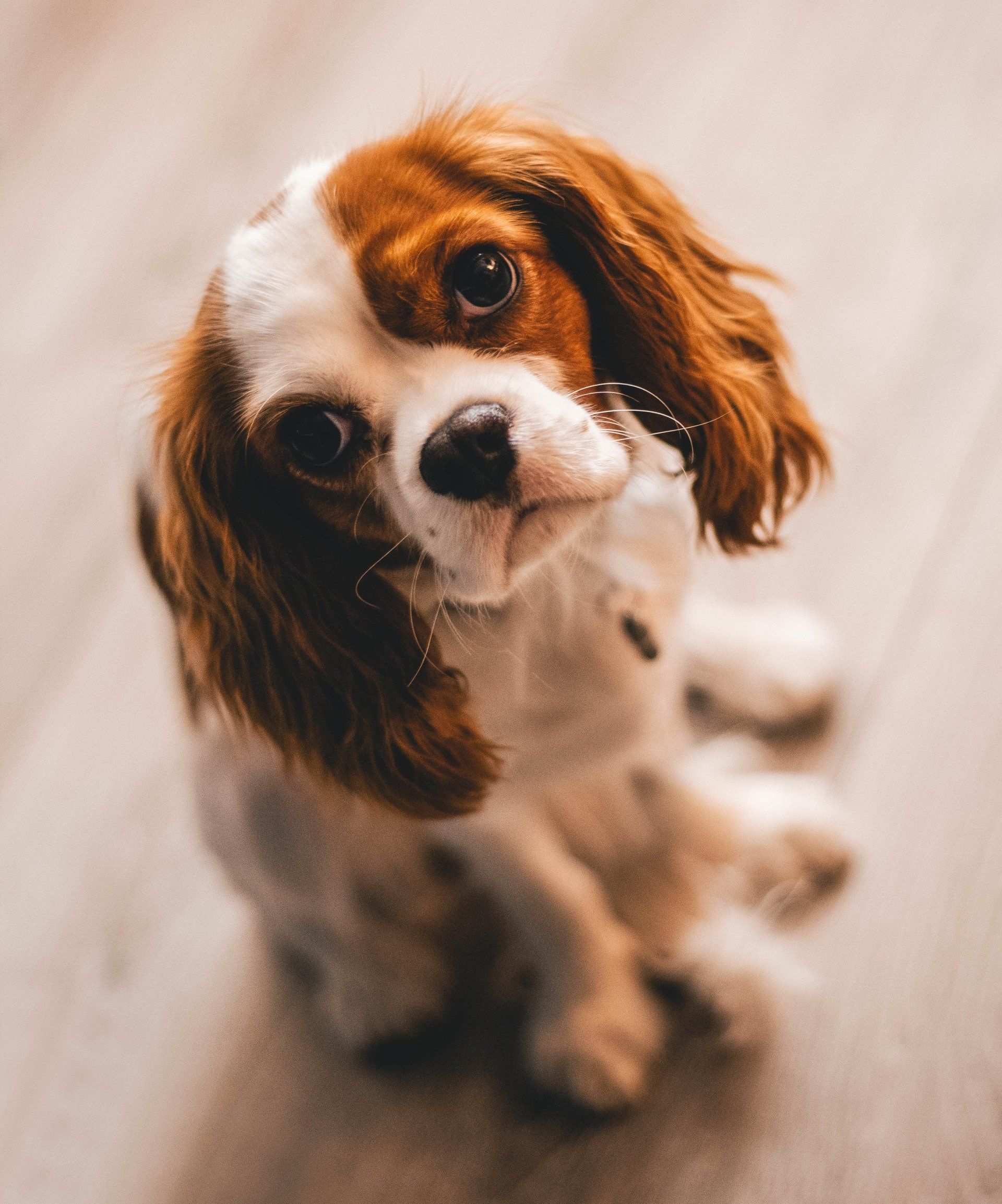
Week 4: Confidence, Exploration, and Consistency
By Week 4, your puppy is showing more personality, curiosity, and independence. This week is about building confidence, refining training, and introducing new challenges in a way that keeps learning fun.
Advancing Basic Training
Your puppy has learned the foundations—now it’s time to add more difficulty and distractions to their training.
🐾
Come When Called: Practice in a safe, enclosed area. Call your puppy in an excited voice and reward them generously when they reach you. If they ignore you, don’t repeat the command—try running the other way or using a high-value treat.
🐾
Stay with Distractions: Ask for a “Stay” while tossing a toy nearby or having another person walk by. Start easy, then increase distractions gradually.
🐾
Leave It: Hold a treat in your closed hand. When your puppy stops trying to grab it, say “Leave it” and reward them with a different treat.
📌 Tip: Always set your puppy up for success—start simple and increase difficulty one step at a time.
Exploring New Environments & Experiences
Your puppy needs variety in their experiences to grow into a well-adjusted dog. This week, introduce new places, textures, sounds, and challenges.
🏡
Indoor Exploration: Let them walk on different surfaces (tile, carpet, stairs, grass). Reward confidence!
🚶♂️
Outdoor Adventures: Take them to quiet parks, sidewalks, or pet-friendly stores for short outings.
🔊
Sound Desensitization: Play recordings of fireworks, sirens, and other loud noises at low volumes while giving treats.
📌 Tip: Keep outings short and positive—your goal is quality over quantity. One good experience is better than several overwhelming ones.
Strengthening Alone Time & Crate Comfort
By now, your puppy should be comfortable spending short periods alone. Continue reinforcing this skill:
✔️
Crate Relaxation: Reward your puppy for choosing to go into their crate on their own. Leave the door open sometimes to make it a positive space.
✔️
Alone Time Expansion: Step out for 10-15 minutes, making sure your puppy is settled with a toy before you go.
✔️
No Overexcitement on Return: Ignore them for a minute when you get home to prevent over-dependence on your arrivals.
Common Week 4 Challenges & Solutions
🐶
Increased Jumping: If your puppy starts jumping for attention, turn away and wait for four paws on the ground before rewarding.
🐶
Teething Intensifies: Provide frozen washcloths, rubber toys, and long-lasting chews to soothe their gums.
🐶
Testing Boundaries: Your puppy may try to ignore commands they previously learned—stay patient, consistent, and always reward good behaviour.
By the end of Week 4, your puppy should be more confident, adaptable, and ready for new experiences. Keep reinforcing positive habits, and you’ll continue to see amazing progress!
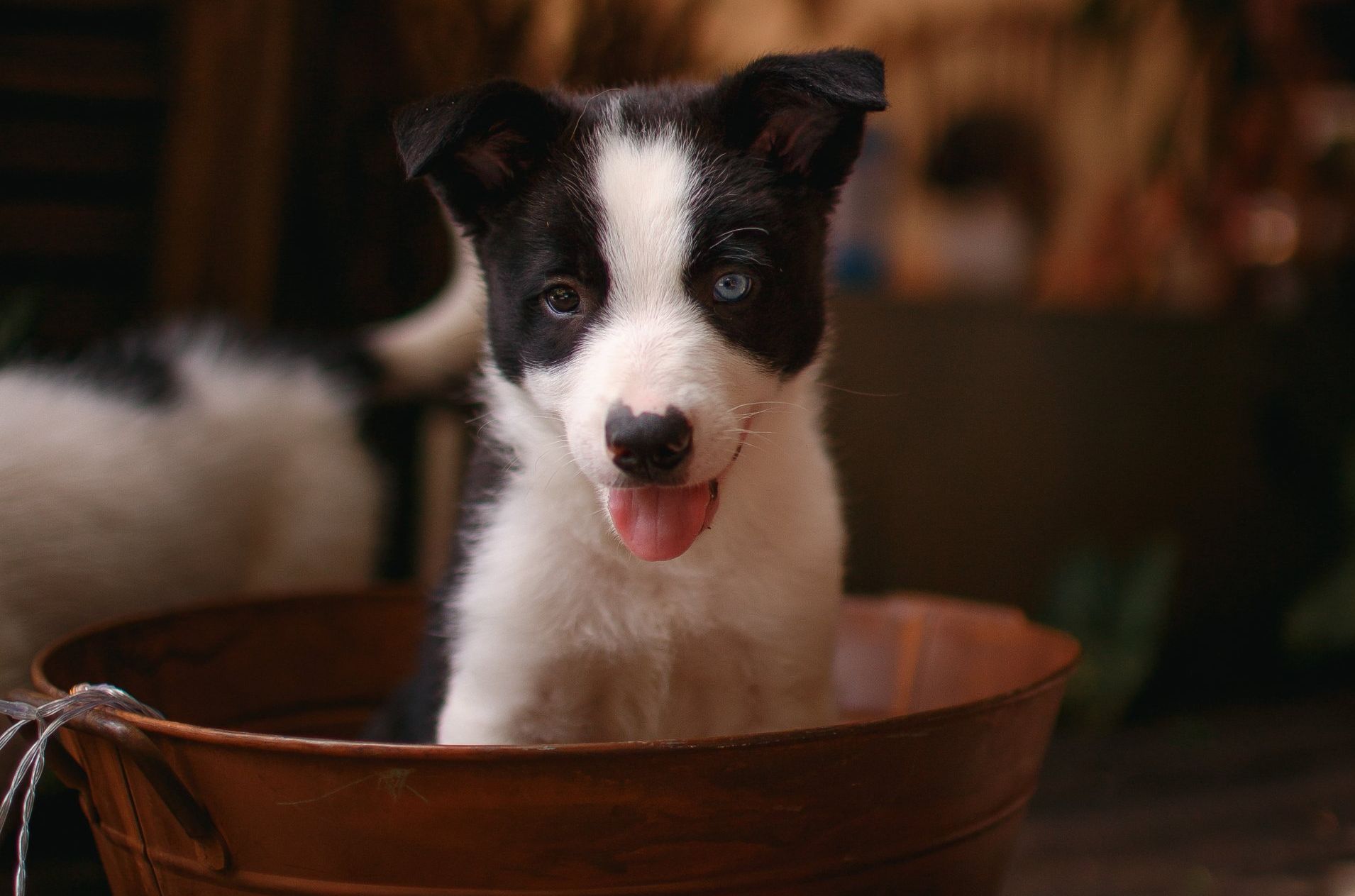
Week 5: Building Focus, Impulse Control & Social Skills
At five weeks into training, your puppy is becoming more independent, playful, and eager to explore. This week, we’ll focus on improving attention, refining impulse control, and strengthening social skills in new environments.
Deepening Training & Engagement
Your puppy is now familiar with basic commands, so it's time to increase challenges and add real-world distractions.
🐾
Focus & Eye Contact: Say your puppy’s name and reward them the moment they make eye contact. This strengthens their ability to stay attentive.
🐾
Stay for Longer Periods: Gradually increase the time before giving a reward. Start with 5 seconds and work up to 30 seconds or more.
🐾
Loose Leash Walking: If your puppy pulls, stop and wait. Reward them when they return to your side.
Patience is key!
📌 Tip: If your puppy struggles with focus, train in short bursts (1-2 minutes at a time) and make it fun!
Impulse Control & Decision-Making
Teaching your puppy self-control will help them make better choices in daily life.
🔹
Wait Before Eating: Ask your puppy to sit before placing their food bowl down. Gradually increase the waiting time before giving them the release cue.
🔹
Polite Greetings: If your puppy jumps on people, teach them to sit before being greeted. Reward them for keeping all four paws on the ground.
🔹
Controlled Excitement: After playtime, practice a short “Sit” or “Down” before giving another round of fun.
📌 Tip: Impulse control builds patience and frustration tolerance, which are key for a well-mannered adult dog.
Expanding Socialization Safely
Your puppy needs positive exposure to new people, dogs, and places. This week, introduce controlled interactions:
🏡
Familiar Visitors: Invite calm friends or family over and encourage your puppy to approach politely.
🐕
Carefully Selected Dog Friends: Arrange short, supervised playdates with well-mannered dogs.
🌍
New Environments: Visit pet-friendly stores, outdoor cafés, or quiet parks to build confidence.
📌 Tip: Watch your puppy’s body language—if they seem overwhelmed, give them space and end on a positive note.
Common Week 5 Challenges & Solutions
🐶
Increased Barking: If your puppy starts barking for attention, wait for a moment of quiet before rewarding them.
🐶
Struggling with Focus Outside: Bring extra high-value treats (like cheese or chicken) to keep them engaged.
🐶
Overexcitement with Other Dogs: Practice calling them back for treats before letting them return to play.
By the end of Week 5, your puppy will be more focused, patient, and socially confident—all essential for growing into a well-rounded adult dog.
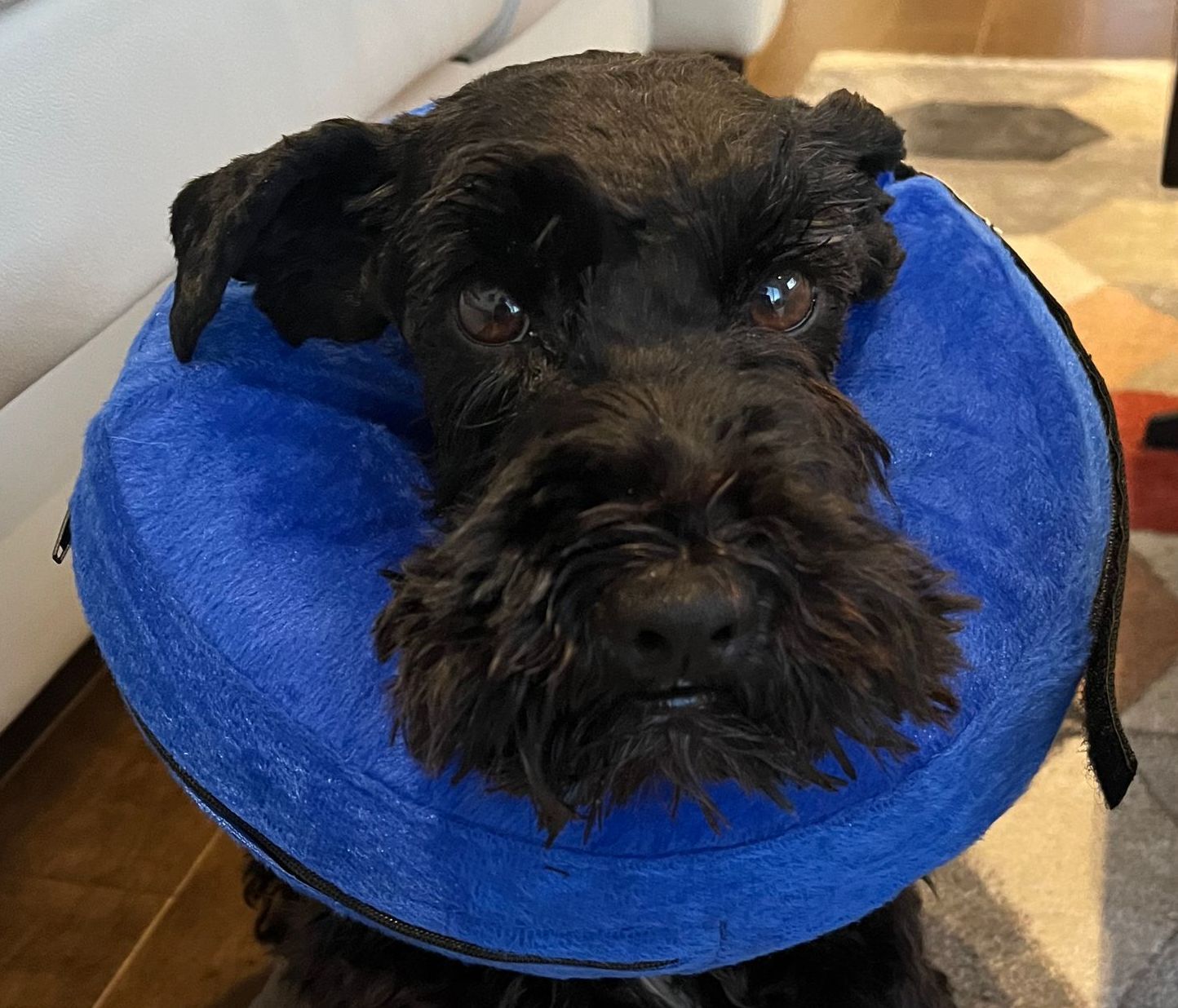
Week 6: Confidence, Recall & Handling New Experiences
Your puppy is now showing more independence and curiosity. This week’s focus is on strengthening recall, handling new experiences, and reinforcing confidence-building exercises.
Mastering Reliable Recall
A strong recall is one of the most important skills your puppy can learn. This ensures they return to you even in distracting environments.
🐾
Start Indoors: Call your puppy’s name followed by “Come!” in an enthusiastic voice. Reward them when they reach you.
🐾
Use a Long Line Outside: Practice in a fenced area or with a long leash, gradually increasing distance and distractions.
🐾
Make It Exciting: Run a few steps backward to encourage chasing, and reward generously when they reach you.
📌 Tip: Never call your puppy to end fun (like leaving the park). Call them randomly, reward, and let them go back to playing!
Boosting Confidence with New Experiences
Exposing your puppy to novel sights, sounds, and surfaces will help prevent fearfulness later in life.
🔹
Walking on Different Surfaces: Encourage your puppy to step on grass, gravel, tile, and wood flooring.
🔹
Hearing New Sounds: Gently introduce everyday noises like vacuums, doorbells, and passing cars at a safe distance.
🔹
Meeting Calm Strangers: Let your puppy approach new people at their own pace. Reward calm, confident interactions.
📌 Tip: Keep experiences short and positive—if your puppy shows hesitation, don’t force them. Reward small steps forward!
Handling & Grooming Practice
Your puppy should feel comfortable being touched, examined, and handled, which is essential for vet visits and grooming.
🐾
Gentle Touch Sessions: Rub their paws, ears, and tail while giving treats.
🐾
Introduce a Brush: Use a soft brush and reward after each stroke.
🐾
Practice Holding Still: Gently hold them in place for a few seconds, then reward for remaining calm.
📌 Tip: Handling practice builds trust and patience, making future care much easier!
Common Week 6 Challenges & Solutions
🐶
Puppy Ignores Recall Outdoors: Use extra tasty treats and
practice in lower-distraction environments first.
🐶
Fearful Reactions to New Things: Keep sessions brief and
pair new experiences with treats to create positive associations.
🐶
Squirming During Grooming: Start with just a few seconds of handling, then reward and
gradually increase time.
By the end of Week 6, your puppy will be more confident, responsive, and comfortable in new situations, setting the foundation for a well-adjusted adult dog.
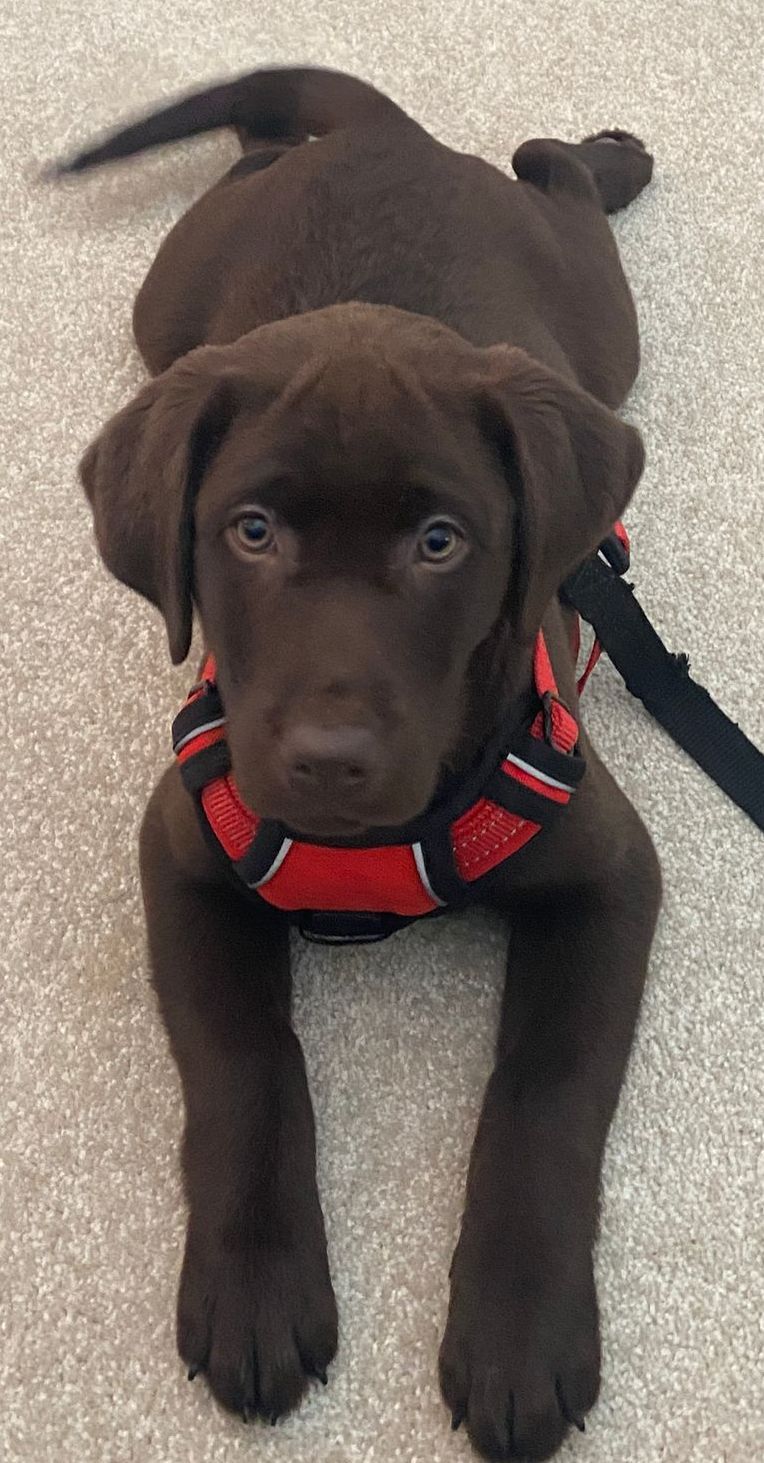
Week 7: Strengthening Focus, Impulse Control & Social Skills
Your puppy is growing more adventurous, which means it’s time to refine their focus, improve impulse control, and enhance social skills. This week, you’ll work on reinforcing good manners in different environments.
Building Laser-Focus in Distracting Environments
Puppies are naturally curious, but teaching them to focus on you—no matter what’s happening around them—will set them up for success.
🐾
Name Recognition & Eye Contact: Say your puppy’s name and reward them for making eye contact. Gradually add distractions.
🐾
Pattern Games: Try “1-2-3,” where you count out loud, and on “3,” give a treat. This helps your pup stay engaged on walks.
🐾
Find It Game: Toss a treat on the ground and say, “Find it!” This redirects their energy and teaches them to focus back on you.
📌 Tip: If your puppy is struggling with focus, lower distractions before increasing difficulty. Success comes in small steps!
Impulse Control: Learning to Wait
Excitable puppies need guidance on when to pause, wait, and calm down. This helps prevent jumping, lunging, and overexcitement.
🔹
Wait at Doors: Ask your puppy to “sit” before opening a door. Reward calm waiting before letting them through.
🔹
Leave It Command: Hold a treat in your closed hand. When your puppy stops pawing or licking, say “Yes!” and reward with a different treat.
🔹
Mat Training: Teach your pup to relax on a designated mat. Reward when they settle down on it.
📌 Tip: Self-control is a learned skill. Start with short practice sessions and reward good decisions!
Social Skills & Canine Manners
Proper socialization is about positive experiences, not just meeting lots of dogs and people.
🐾
Controlled Dog Greetings: Teach your puppy to approach calmly. If they pull toward another dog, pause until they relax, then allow the greeting.
🐾
Handling Excited Jumping: Reward four paws on the ground—don’t reinforce jumping by giving attention.
🐾
Meeting New People: Ask friends to let your puppy approach first, rewarding calm interactions.
📌 Tip: Not all puppies want to play with every dog or person. Respect their comfort level and create positive interactions!
Common Week 7 Challenges & Solutions
🐶
Puppy Gets Distracted Easily: Start training in a quiet area and slowly increase distractions.
Set them up for success!
🐶
Overexcited Greetings: Teach an alternative behavior like “sit” when meeting people.
Reward calmness.
🐶
Struggles with Waiting or Leaving It: Use
high-value rewards and short practice sessions to build success.
By the end of Week 7, your puppy will be more focused, patient, and polite, making outings and social interactions more enjoyable for both of you.
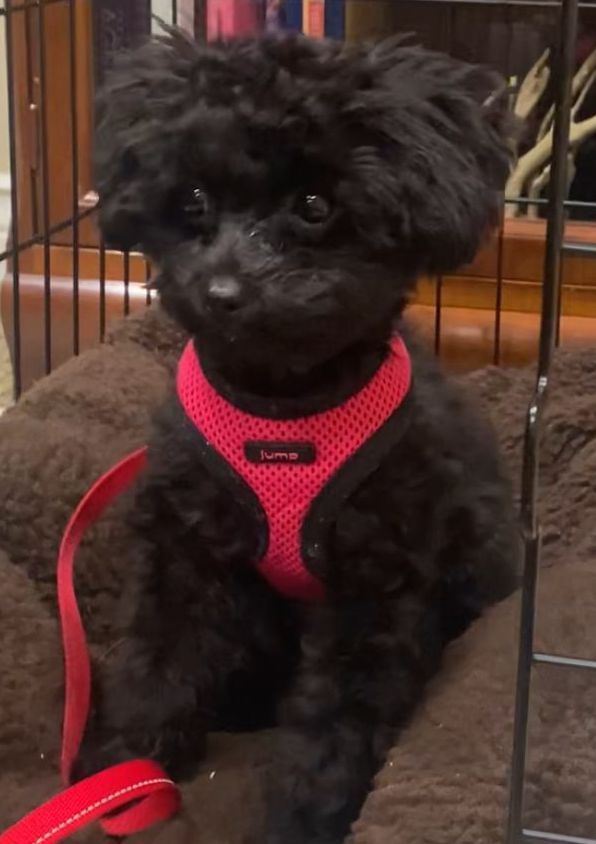
Week 8: Mastering Recall, Leash Walking & Building Confidence
At this point, your puppy has made incredible progress! Week 8 is all about perfecting key skills like recall (coming when called), walking on a leash without pulling, and boosting their overall confidence.
Recall: Teaching Your Puppy to Come When Called
A solid recall is one of the most essential commands your puppy can learn, especially for their safety. If they’re off-leash or out in public, you want them to respond quickly to your call.
🐾
Start Indoors: Begin by calling your puppy’s name and offering a high-value treat when they come. Make it
fun—treats, toys, or playtime.
🐾
Increase Distance: Call your puppy from across the room, then increase the distance gradually. Always reward them when they come, no matter how long it takes.
🐾
Outdoor Practice: Once your puppy’s recall is solid indoors, practice in a securely fenced area. Begin with shorter distances, increasing as they improve.
📌 Tip: Never punish your puppy for coming to you. You want them to love coming when called.
Leash Walking: Building a Calm, Focused Walk
Puppies often struggle with pulling on the leash, so teaching them to walk politely is key to enjoyable walks. Start with some leash manners that will make all the difference.
🔹
Stop-and-Go Method: When your puppy pulls, stop walking. Wait for them to look back or loosen the leash, then reward and keep moving.
🔹
Loose Leash Walking: Walk at a comfortable pace and reward your puppy for walking beside you without pulling. Use treats or praise to reinforce the correct behavior.
🔹
Redirecting Attention: If your puppy gets distracted or starts pulling, gently call their name and offer a treat to refocus them.
📌 Tip: Keep walks fun and engaging with lots of rewards. Your puppy will begin associating walks with positive experiences!
Boosting Confidence Through Positive Experiences
Confidence-building isn’t just for anxious pups—it’s for all puppies. Week 8 is about creating positive, confidence-boosting experiences that will help your puppy become comfortable in new situations and environments.
🐾
Exploring New Environments: Take your puppy to new locations like a dog-friendly park or a quiet street. Expose them to different surfaces, like grass, gravel, or pavement. Reward curiosity!
🐾
Meeting Different People & Dogs: Continue socializing your puppy, but make sure to control the interactions. Let your puppy explore new friends in a calm, controlled manner, rewarding them for polite behaviour.
🐾
Puppy Confidence Games: Play games like “find it” or hide treats around the house. These activities boost your puppy’s confidence while keeping them mentally stimulated.
📌 Tip: Always make new experiences positive. If your puppy is hesitant, slow down the process and let them explore at their own pace.
Common Week 8 Challenges & Solutions
🐶
Struggles with Recall in Distractions: Start with easier, low-distraction environments and work your way up. Use treats that really grab your puppy’s attention.
🐶
Pulling on the Leash: Be patient. Focus on
consistency—reward loose-leash walking and stop every time they pull.
🐶
Lack of Confidence in New Places: Take small, manageable steps. Gradually expose them to new environments without overwhelming them.
By the end of Week 8, your puppy will be walking politely on a leash, coming when called, and exploring the world with growing confidence. These skills set the foundation for future adventures, building a strong bond between you and your puppy.
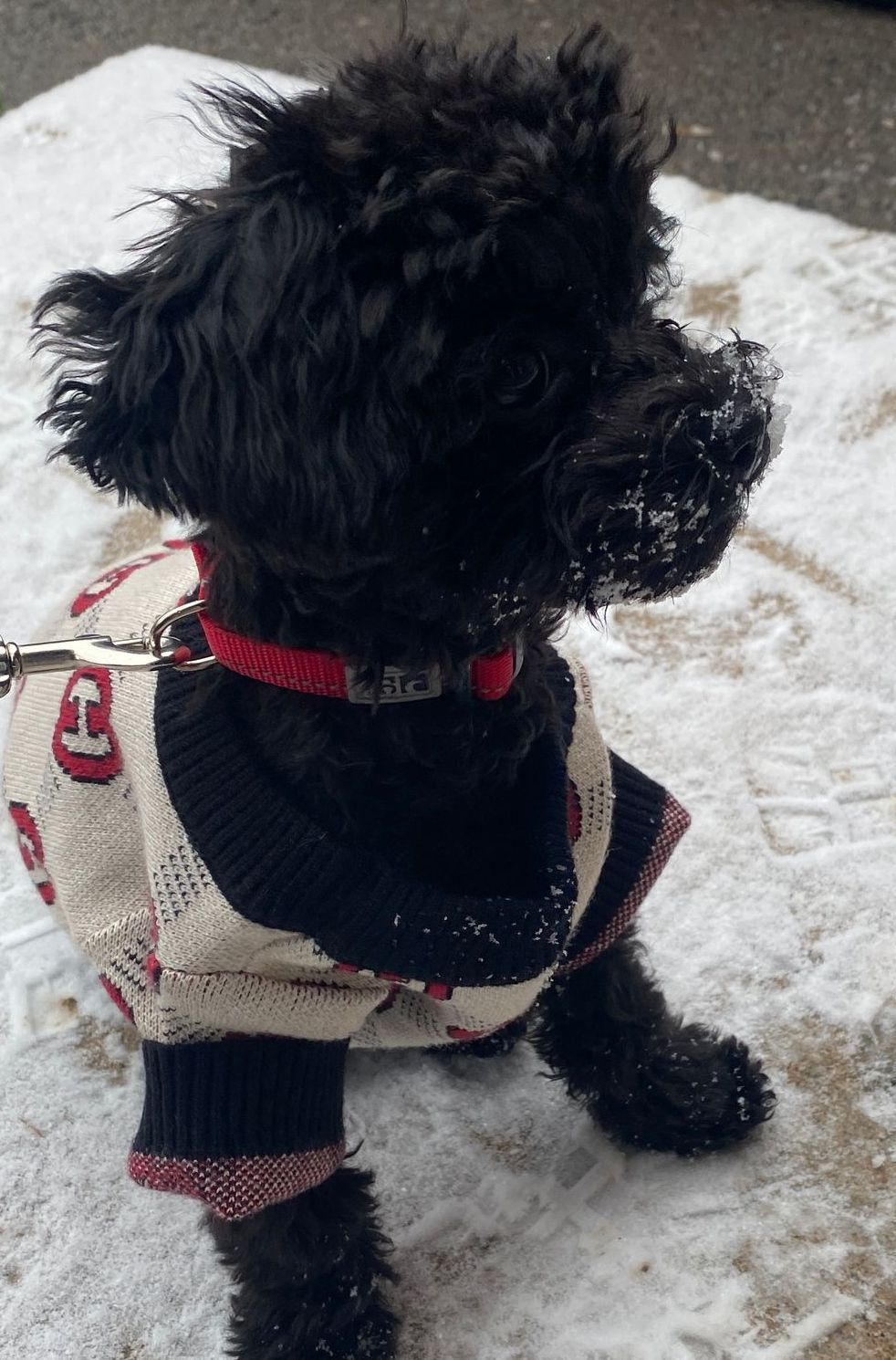
Week 9: Focus on Advanced Training & Relationships
Week 9 marks a transition into more advanced training and refining the skills your puppy has learned so far. You’ll build on their foundational commands, start teaching some fun tricks, and deepen your bond through mutual trust and respect.
Advanced Commands: Sit-Stay, Down-Stay, and Place
By now, your puppy has learned basic commands like sit, stay, and come. Week 9 is the perfect time to extend those commands to longer durations and more challenging scenarios.
🐾
Sit-Stay
Start by asking your puppy to sit, then give the stay command. Gradually increase the duration they hold the position, and reward them for staying. Start with
just a few seconds and build up to longer durations. If they break the position, calmly guide them back to the spot and start again.
🐾
Down-Stay
The down position is more challenging than sitting, so be patient. Teach them to stay in the down position for increasing amounts of time. Start with
short intervals and reward them each time they maintain the position.
🐾
Mat Command
The "place" command is helpful for directing your puppy to a specific spot, like their crate or a bed, and asking them to stay there until released. Use treats to guide them to the spot and reward them when they stay. Gradually increase the duration they are asked to stay.
📌 Tip: Practice these commands in various locations to reinforce them, so your puppy knows they must obey wherever you are.
Fun Tricks: Begin Teaching Your Puppy Fun Tricks
Incorporating fun tricks into training is a great way to mentally stimulate your puppy and keep them engaged as you strengthen your relationship. While they’re still young, you can introduce easy tricks that build confidence and reinforce obedience.
🐾
Shake Hands/Paw: Hold a treat in your hand and let your puppy sniff it. Gently lift their paw and say "shake" or "paw" while rewarding them for the action. Repeat, and soon they’ll be offering their paw automatically!
🐾
Spin: Hold a treat near their nose, guiding them in a small circle. Once they’ve spun around, give lots of praise and treats. Repeat the motion until they start to spin on command.
🐾
Roll Over: Start by having your puppy lay down. Then, gently guide them over with a treat, rolling them from their back to their side. Reward them for following the movement.
📌 Tip: Keep trick training fun and positive! Short sessions (5-10 minutes) work best to keep your puppy engaged without overwhelming them.
Strengthening Your Bond Through Play and Quality Time
Building a strong bond with your puppy is essential, and Week 9 is a great time to spend more time together doing activities that reinforce your connection.
🐾
Interactive Playtime: Play tug-of-war with your puppy or fetch to engage in active, positive play. These games are excellent for teaching boundaries and impulse control while allowing your puppy to burn off energy.
🐾
Training Walks: Combine walking with training by practicing commands while on the move. Stop for sit-stays or practice loose-leash walking as you explore new environments together.
🐾
Positive Handling and Grooming: Regular grooming sessions, such as brushing their coat, cleaning ears, and nail trimming, will not only keep your puppy healthy but also help them get used to being handled.
📌 Tip: Always reinforce calm behaviours during playtime and make sure your puppy is enjoying themselves. Never force play—they should want to engage with you.
Common Week 9 Challenges & Solutions
🐶
Puppy Gets Distracted During Advanced Commands: Choose low-distraction environments to practice first. Gradually increase difficulty by adding more distractions over time.
🐶
Puppy Doesn’t Want to Stay in Place: If your puppy struggles with staying in one spot, break the command down into smaller steps and use treats to motivate them.
By the end of Week 9, your puppy will be mastering advanced commands, learning fun tricks, and forming a deeper bond with you. It’s an exciting week filled with progress, and your puppy’s skills will continue to evolve as you build your relationship together.

Week 10: Fine-Tuning Skills & Mastering Socialization
Week 10 is about polishing what your puppy has already learned and taking their socialization skills to the next level. At this stage, your puppy is gaining more confidence, and it's time to challenge them in real-world settings while reinforcing your bond.
Advanced Obedience: Proofing Commands in Distractions
By now, your puppy should be familiar with basic commands, but it’s time to practice in more challenging situations with distractions. The goal is to ensure that your puppy listens to you even when there are distractions around.
🐾
Proofing Sit-Stay and Down-Stay in Public Places:
Start practicing the
sit-stay and
down-stay commands in more public or distracting areas like your yard, the park, or even during a walk. Gradually increase the distance between you and your puppy as they get better at staying in one place.
🐾
Adding More Distance:
Increase the challenge by walking away from your puppy while they stay in place. If they break the position, calmly guide them back to the spot and reward them for staying put. This will help them focus on you, even when there are distractions around.
📌 Tip: It’s important to gradually increase distractions in a way that your puppy can handle. If you overwhelm them with too much too soon, they may become frustrated.
Socialization: Mastering Public Places and New Experiences
Socialization is a key part of raising a well-behaved puppy, and Week 10 focuses on taking it to the next level. Now that your puppy has been exposed to various environments, it’s time to add complexity to their socialization experiences.
🐾
Out-and-About Socialization:
Take your puppy to
pet-friendly stores,
dog parks, or
cafes with outdoor seating. This gives your puppy the chance to experience new environments and meet different people and dogs. Keep your puppy on a leash and supervise interactions.
🐾
Meeting New Dogs:
Continue to introduce your puppy to other well-behaved dogs. Remember to watch for signs of anxiety or stress in your puppy, and keep the experiences positive and calm.
🐾
Handling Different Surfaces:
Expose your puppy to various surfaces like
gravel, tiles, or grass. This will help them become more adaptable in unfamiliar environments. It’s also a great way to reduce fear and build confidence.
📌 Tip: Keep socialization experiences brief and positive. If your puppy seems overwhelmed, give them a break and try again later.
Mental Stimulation: Engaging Games for Cognitive Development
Week 10 is a great time to add more mental stimulation into your puppy’s routine. By now, your puppy’s learning ability is increasing, so it’s a good idea to introduce interactive games that will challenge their problem-solving skills.
🐾
Puzzle Toys:
Introduce
interactive puzzle toys that require your puppy to figure out how to get a treat or reward. This is an excellent way to engage their brain and reduce boredom.
🐾
Hide and Seek:
You can play a game of
hide and seek with your puppy by hiding their favorite toy or a treat and encouraging them to find it. Gradually increase the difficulty by hiding it in harder-to-find places.
🐾
Training Games:
Make training sessions even more fun by turning them into
games. Practice commands like sit, stay, or come while adding fun twists like having them go around an object or follow a path.
📌 Tip: Keep mental stimulation activities short and frequent. Puppies get tired from thinking hard, so short bursts of brain exercises are the most effective.
Bonding Activities: Strengthening Your Relationship
As your puppy’s training progresses, it’s crucial to continue building a strong, trusting bond. This is the foundation for everything from obedience to emotional connection.
🐾
Interactive Play:
Continue to engage in
tug-of-war,
fetch, or
chase games to encourage bonding. These activities not only help your puppy burn off energy but also improve their impulse control and ability to follow commands during fun interactions.
🐾
Cuddling and Calm Time:
Don’t forget the importance of calm moments. Spend time
cuddling,
brushing, or simply sitting together in a quiet space. This creates a feeling of comfort and connection between you and your puppy.
🐾
Daily Routine Consistency:
Ensure that your puppy’s daily routine, including feeding, potty breaks, and training, remains
consistent. This consistency helps your puppy feel secure and strengthens their trust in you.
📌 Tip: Keep these bonding activities positive and relaxed. The goal is to nurture the emotional connection you share.
Common Week 10 Challenges & Solutions
🐶
Puppy Gets Overwhelmed in Public Places:
Start with less crowded places and gradually increase the challenge. If your puppy gets too anxious, take a step back to a quieter area and slowly reintroduce them to the situation.
🐶
Puppy’s Focus Wanders:
If your puppy seems distracted, use their favourite treats or toys to bring their attention back. Start in a low-distraction environment and build up to more complex settings as they improve.
By the end of Week 10, your puppy will be more confident in public spaces, more responsive to commands even with distractions, and more mentally stimulated. You’ll also notice a deepened connection with your puppy that will set the stage for continued growth and success in their training journey.

Week 11: Advanced Skills & Preparing for Real-Life Situations
Week 11 is about expanding on the foundation you’ve laid so far. Your puppy is becoming more confident, and now it’s time to refine their skills and expose them to more complex scenarios. This week will focus on advanced commands, increasing distractions, and preparing for real-world situations, all while strengthening the bond between you and your puppy.
Advanced Obedience: Adding Layers to Training
Now that your puppy has mastered basic commands and is performing well in different environments, Week 11 is all about adding layers of complexity to their obedience skills. These advanced skills will be useful in real-life situations and will improve your puppy's focus and responsiveness.
🐾
Advanced Sit-Stay and Down-Stay with Longer Durations:
In this week, we’ll continue practicing
sit-stay and
down-stay with longer durations. You should increase the time your puppy stays in position before releasing them. Start with brief increments and work your way up.
🐾
Distraction Training:
While your puppy stays in position, introduce various distractions like walking by them, moving objects, or playing with another dog nearby. The goal is for your puppy to maintain focus on you, even when there are temptations around.
🐾
Recall in Challenging Situations:
Practice
come with increasing levels of difficulty. For example, call your puppy while they’re distracted or in the middle of playing with a toy. Reward them immediately when they respond correctly.
📌 Tip: When adding distractions, be sure to reward immediately for compliance to reinforce the behaviour.
Socialization: Mastering Busy, Complex Environments
Your puppy has been gradually introduced to new environments, and now it’s time to push them further by exposing them to more bustling places. This exposure helps them develop emotional resilience and better control in chaotic situations.
🐾
Busy Parks or Pet Stores:
Take your puppy to busy
parks,
pet stores, or
farmer's markets where they can experience people, other dogs, and different smells. Ensure your puppy remains calm and focus on keeping their attention on you.
🐾
Outdoor Events and Social Gatherings:
Consider taking your puppy to an
outdoor event where there will be more distractions, like music, people walking by, and other dogs. Keep the experience positive and rewarding. You can practice basic commands, and your puppy will benefit from learning to stay calm in a crowd.
🐾
Children and Larger Groups:
Introduce your puppy to
children (if they haven’t already) and practice how to behave calmly around them. If your puppy seems unsure, guide them gently and keep the interactions brief and positive.
📌 Tip: Always monitor your puppy’s body language. If they become overwhelmed, it’s best to remove them from the situation and try again later.
Mental Stimulation: Strengthening Focus and Problem-Solving
Week 11 is a great time to increase the mental challenge for your puppy. By now, their ability to focus has grown, and you can start offering activities that require them to think and problem-solve.
🐾
Advanced Puzzle Toys:
Introduce more
complex puzzle toys that require multiple steps to complete. These types of toys stimulate your puppy’s brain and help them learn to focus and solve problems.
🐾
Find It Game with Higher Difficulty:
Take your
find it game to the next level by hiding treats in harder-to-reach places, like behind furniture or under objects. This will encourage your puppy to use their nose and problem-solving skills.
🐾
Obstacle Courses:
Create an
obstacle course at home or in your yard that challenges your puppy’s agility and decision-making. Use household items like chairs, cones, and tunnels to make the course fun and engaging.
📌 Tip: Keep mental challenges fun and motivating. The goal is for your puppy to enjoy the process of solving problems, not to get frustrated.
Bonding Activities: Deepening Your Connection
Your relationship with your puppy is a critical element of their training. Week 11 is a great time to keep nurturing that bond through positive, rewarding activities.
🐾
Interactive Games:
Continue playing
interactive games like tug-of-war or fetch. These games are fun and also help your puppy practice impulse control and following commands in a playful environment.
🐾
Cuddling and Quiet Time:
Dedicate quiet moments to
cuddling or just spending time together in a calm environment. These moments strengthen your puppy’s trust in you and provide them with much-needed comfort.
🐾
Routines and Consistency:
Stick to a consistent routine for feeding, potty breaks, and playtime. This predictability helps your puppy feel secure and build trust.
📌 Tip: Consistent positive reinforcement for good behaviour and calm moments is key to deepening your bond.
Common Week 11 Challenges & Solutions
🐶
Puppy Is Easily Distracted in Busy Environments:
If your puppy struggles to stay focused in busy areas, try practicing in quieter spots first and gradually increase the distractions. Use treats or toys to bring their attention back to you.
🐶
Puppy Becomes Overwhelmed in Crowds:
If your puppy shows signs of stress, like panting or trying to escape, move them to a quieter area. Allow them to take a break, and slowly reintroduce them to more stimulating environments over time.
🐶
Recall Isn’t Consistent in Distractions:
Work on recall in controlled environments first before progressing to more complex distractions. Gradually increase the challenge while rewarding every correct response.
By the end of Week 11, your puppy should have a stronger focus, better socialization skills, and more confidence in busy situations. They’ll be ready for even more challenging environments as you continue building their skills.

Week 12: Refining Skills & Preparing for Independence
As you enter Week 12, your puppy is nearly at the end of their initial training journey. This week focuses on refining their skills, preparing them for more independence, and ensuring they’re equipped to handle a variety of real-world situations confidently. This week is all about polishing the behaviours they’ve learned and reinforcing consistency.
Polishing Commands and Skills
At this point, your puppy should have a solid foundation in basic and advanced commands. Week 12 will focus on reinforcing those behaviours and fine-tuning their execution in different environments.
🐾
Perfecting Sit-Stay and Down-Stay with Longer Durations:
Now that your puppy is proficient in these stays, you’ll focus on making sure they can stay calm in both predictable and unpredictable situations. Increase the
duration and
distance for these stays, while also adding in more distractions.
🐾
Solidifying Recall in All Environments:
Incorporate recall in more challenging scenarios, such as when they’re playing with another dog or when they’re distracted by something exciting. Make the process fun and rewarding to reinforce the response.
🐾
Impulse Control in Real-Life Situations:
Practice
impulse control when you’re out for walks, at the park, or at a pet-friendly event. Ask for commands like “sit,” “stay,” and “leave it” when there’s food, toys, or other distractions around. The goal is to teach your puppy to stay focused on you regardless of external stimuli.
📌 Tip: Keep commands short and clear. Use positive reinforcement immediately after your puppy successfully responds to maintain enthusiasm.
Increasing Real-Life Exposure and Socialization
Week 12 will focus on preparing your puppy for situations they’ll encounter in the real world. The goal is for them to maintain their composure and responsiveness in busy or challenging environments.
🐾
Public Outings and Outdoor Adventures:
Take your puppy to
dog-friendly parks,
pet stores, or even
outdoor festivals. Practice keeping them calm and focused in environments with high energy. If they become overwhelmed, take breaks and reward calm behavior.
🐾
Interactions with New People and Dogs:
Continue to expose your puppy to new people and dogs. Ensure that these interactions remain calm and positive. Reinforce appropriate greetings and teach them to be polite during encounters.
🐾
Handling Unexpected Situations:
Expose your puppy to unpredictable experiences like a sudden loud noise or a fast-moving object. Keep them on leash and help them feel secure while encouraging a calm response. Reward them for staying composed.
📌 Tip: Gradually introduce your puppy to new situations to avoid overwhelming them. Always have high-value treats or a favourite toy on hand to reinforce positive behaviour.
Building Confidence & Independence
Now that your puppy has learned to follow commands and handle distractions, it's time to help them become more independent. Independence doesn’t mean ignoring you, but it means they can handle situations on their own with confidence.
🐾
Crate Training for Rest and Relaxation:
Reinforce
crate training for both relaxation and sleeping. Your puppy should now be comfortable spending time in their crate when needed. Start giving them short periods of alone time in the crate while you’re in another room, gradually increasing the time.
🐾
Solo Playtime:
Encourage your puppy to engage in
solo play with their toys. This helps them build independence and keeps them entertained while you're away. Rotate toys regularly to keep them engaged.
🐾
Self-Soothe and Calm Routines:
Continue to reinforce the importance of
self-soothing behaviours. A calm routine before sleep or during stressful times helps your puppy learn how to manage anxiety. Teach them to go to their mat and stay calm in various situations.
📌 Tip: Build independence gradually, so your puppy doesn’t feel anxious or overwhelmed. Always provide reassurance and positive reinforcement.
Training for Mental and Physical Stimulation
Your puppy’s brain and body need continued stimulation, and Week 12 provides a chance to add variety to their training. You can continue to challenge their mind while also keeping them physically active.
🐾
Advanced Puzzle Toys:
Introduce even more complex puzzle toys to keep your puppy's brain active. These toys require them to think and use problem-solving skills to access the treat.
🐾
Agility Training:
If you have space, start setting up an
agility course with tunnels, jumps, and weaving poles. Agility training improves your puppy’s coordination and focus. Start slow and reward every successful attempt.
🐾
Find It Game with Challenges:
Raise the difficulty of the
find it game by using items other than food. Hide their favourite toys around the house and let them search for them, or increase the difficulty by hiding treats in more challenging spots.
📌 Tip: Mental stimulation helps prevent boredom and promotes positive behaviours. Make sure to offer plenty of chances for physical and mental challenges every day.
Bonding and Trust
The relationship you’ve built with your puppy is crucial for their success. Week 12 is about reinforcing that bond through positive interactions and continued trust-building exercises.
🐾
Cuddling and Quiet Time:
Spend time with your puppy in calm environments. These moments are important for their emotional well-being and help reinforce the connection between you.
🐾
Interactive Play:
Engage in games that promote bonding, such as
fetch,
tug-of-war, or
hide-and-seek. These games reinforce the idea that you are their trusted leader, and they can have fun with you.
🐾
Be Consistent with Training:
Consistency in both training and behaviour is key. Continue to reinforce the behaviours you want to see and remain calm and patient in moments of challenge.
📌 Tip: Positive experiences are the key to building lasting trust and ensuring that your puppy thrives as they mature.
Common Week 12 Challenges & Solutions
🐶
Puppy Becomes Anxious When Left Alone:
Start with very short durations and gradually increase the time your puppy spends alone. Always reward calm behaviour when you return.
🐶
Puppy Struggles to Focus in Distractions:
Go back to more controlled environments and practice with fewer distractions. Slowly increase the challenge level over time, always rewarding for focus.
🐶
Puppy Exhibits Behaviour Issues (Jumping, Nipping):
If your puppy is still jumping up or nipping, use redirection and positive reinforcement for calm behaviour. Continue practicing basic commands like “sit” or “down” to replace the undesired behaviours.
By the end of Week 12, your puppy should be a confident, well-adjusted companion who is ready for new challenges. They’ll be capable of handling various environments and situations while continuing to grow in their bond with you.
Your Puppy’s Next Chapter
After completing the 12-week training journey, your puppy will be well on their way to becoming a well-behaved, confident, and balanced dog. However, the training doesn’t stop here. Continue to reinforce positive behaviors, expose your puppy to new experiences, and maintain a consistent routine to help them grow into the best version of themselves.
Congratulations on all of your hard work and dedication – your puppy is now set to thrive as a well-trained and confident canine companion! 🐾💖
